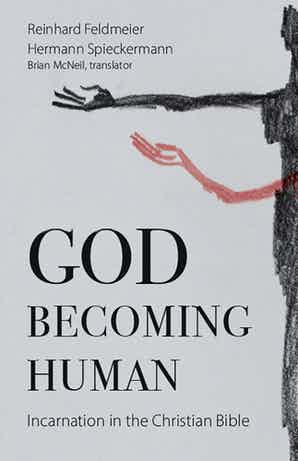Reinhard Feldmeier and Hermann Spieckermann (trans. Brian McNeil).
God Becoming Human: Incarnation in the Christian Bible
Waco, TX: Baylor University Press, 2021.
In this book, Spieckermann (an OT scholar) and Feldmeier (an NT scholar) team up to address the topic of the incarnation according to the biblical witness. This includes its preparation in the OT and the various interpretations of incarnation in the NT. It has a lot more on the OT than most books on christology, as such, the book maps from the OT the divide between God and his creatures, as well as the diverse expressions that OT texts give regarding the need for reconciliation between God and his creatures. Furthermore, they note that as expectations for an existing intermediary, who could somehow bridge that gap between God and humans gradually dwindled across the OT, it gave way to a new hope for new forms of closeness to God climaxing in the NT accounts of incarnation.
The central thesis of the book is that:
Becoming human is the definitive deed of love on the part of the God who created in his creation, and especially in his most beloved creature, the human being who is God’s likeness, the vis-a-vis without which he does not wish to be God (367).
The book divides into two main sections. First, the pre-history of incarnation which deals with God and his creation, mediators of God’s proximity (prophet, priest, king, etc.), new figures of God’s nearness (Spirit, Wisdom, Son of Man, Son of David), and the Isaianic hope of righteousness, reconciliaiton, and life. Second, the diverse conceptions of incarnation in the NT, including the historical Jesus, Paul, Synoptic Gospels, Johannine Gospel, and the Catholic letters with Revelation.
The book is fairly easy to read despite being based on an earlier German publication. It is full of some thoughtful and quite poignant quotes. It is certainly heavier than most christology volumes on the significance of the OT as praeparatio for incarnation (although some scholars will dispute whether OT should be treated and valued merely as a praeparatio for Christianity). But it has some excellent chapters, especially on Isaiah and the Gospel of John. The footnotes are a bit German heavy and there’s a lot of technical Latin terms used. Otherwise, this book would be a great addition to the reading list for college or seminary courses on christology and biblical theology.




